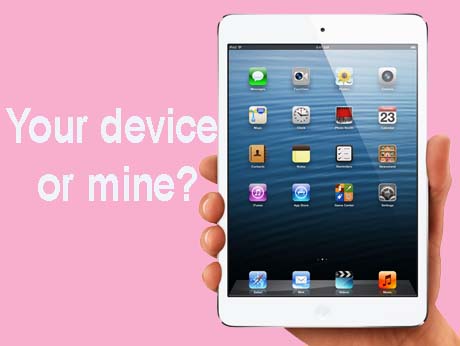
Bangalore, November 29 2013: At a time when the BYOD (Bring Your Own Device) trend is making headlines, bringing with it challenges and benefits in equal measure, another technology initiative is quietly occupying the middle ground. ‘Choose Your Own Device’ (CYOD) offers many of the benefits of BYOD without some of the drawbacks.
With the growth of the ‘always on, always connected’ work culture, the adoption of smartphones, tablets and notebooks that facilitate the trend is also growing. Leading market research firm, Forrester (2013 Mobile Workforce Adoption Trends ) predicts that in two years' time, 350 million workers will use smartphones, 200 million of whom will take their own devices to the workplace. It is estimated( iPass Q1 2013 Mobile Workforce Report: BYOD and costs impact productivity h .) that 90 percent of organisations will have to support BYOD by 2014.
However, there is an alternative — CYOD. The concept is simple. By offering employees a choice of approved devices, IT managers can retain more control over their IT estate, as compared to the free-for-all BYOD. Though CYOD strategies may mean less freedom for employees and may not provide the high staff-satisfaction rates reported for BYOD, they can prevent IT managers from feeling overburdened while still providing the desired functionality, mobility and flexibility.
Expressing concern over the expansion of responsibilities of the IT manager brought about by the advent of the BYOD trend, Hardeep Singh Garewal, Europe President, ITC Infotech, says, “With the huge range of tablets, smartphones, operating systems and platforms available, it is no wonder that IT managers are feeling overwhelmed. Windows, iOS, Blackberry RIM, Android and the growing list of other operating systems pose a real challenge for organisations to provision all necessary business applications across all these platforms. By limiting the number of options available to the staff, this complexity can be reduced significantly without losing the benefits of increased staff mobility, higher job satisfaction and improvement in efficiency and productivity.”
--------------------------------------------------------------------------------------
Bring Your Own Device (BYOD): Any device, owned by the user, used anywhere. Users purchase, own and maintain a device found on the open market. They even install apps themselves. Challenges include data security, experience consistency, support expenses, policy and integration.
Choose Your Own Device (CYOD): Preapproved device, owned by the company, used anywhere. In most cases, the company purchases, owns and maintains the device. Employees choose from an approved list in a custom online portal. Challenges include security and scalability. (From MOBILITY: BYOD VS. CYOD; Insight.com)
----------------------------------------------------------------------------------------------------------------------------
Ovum analyst Richard Absalom says ( in a Computer World article) limiting the number of devices “makes it easier to find a solution that can secure and manage the corporate data on those devices.”“Businesses can let employees choose from devices that they are sure can be managed and secured to the required extent.... “CYOD would ensure that only the most up to date (and secure) versions of the OS would be supported”
Other analysts agree: Choose" rather than "bring" your own device will become the main enterprise mobile strategy, because it enables better security and mobilization of applications, according to IDC's Asia-Pacific Predictions for 2014." ( ZDNET )
Even with the reduced set of options provided by a CYOD approach, the challenges are formidable and help may be required to deal with the increased complexity. “We offer an ‘anytime, anywhere, any platform’ service that provides access to enterprise resources from any device,” said Garewal. “Whether you have the limited range of devices, dictated by the CYOD model, or are open to the BYPD approach, we encourage and manage the coexistent estate, with multiple operating systems existing in the environment at the same time.”
The growing popularity of BYOD and now CYOD, has opened up a whole new range of opportunities for service providers like ITC Infotech. Till recently, all enterprise resources were typically provided on Windows platforms. However, the BYOD and CYOD trends have thrown up the challenge of provisioning business resources and applications seamlessly across all available operating systems. As these small form factor, user-owned devices — anything smaller than a conventional laptop – are getting introduced in organisations, the challenge is to support them all seamlessly while maintaining the required governance standards. Clearly, CYOD is going to make this challenge a lot easier for the IT manager.